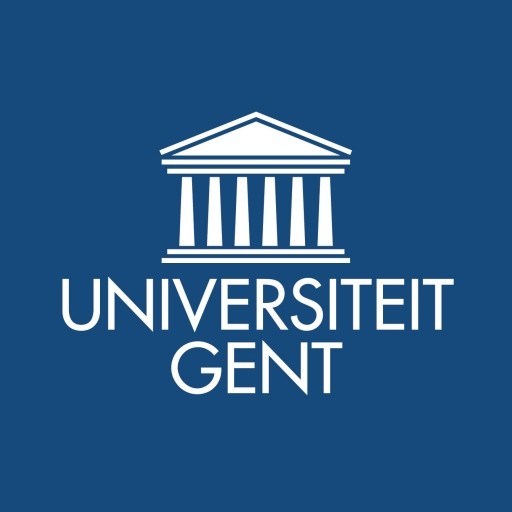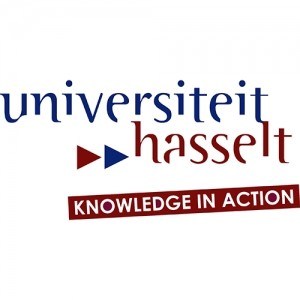Photos of university / #thefoundry_ugent
Aquaculture at Ghent University offers a comprehensive and interdisciplinary education designed to prepare students for innovative careers in the sustainable production and management of aquatic organisms. The program combines biological, technological, environmental, and economic aspects of aquaculture, providing students with a solid foundation in the science and practice of aquatic resource cultivation. Throughout the curriculum, students explore topics such as fish and shellfish biology, marine and freshwater ecosystems, aquaculture technology, fish health management, feed development, and sustainability practices. The program emphasizes hands-on learning through laboratories, internships, and fieldwork, enabling students to acquire practical skills essential for industry and research settings. Ghent University’s state-of-the-art facilities, including research laboratories and aquaculture centers, facilitate experiential learning and cutting-edge research opportunities. Students are encouraged to engage in international collaborations and stay updated with the latest advancements in aquaculture innovation, environmental sustainability, and food security. Graduates of the program are equipped with the knowledge and skills necessary to contribute to the development of sustainable aquaculture practices, address global food challenges, and pursue careers in research, industry, consultancy, and policy-making related to aquatic resources. The program’s multidisciplinary approach ensures that students are well-prepared to tackle the complex issues facing modern aquaculture and to advance the sustainable exploitation of aquatic biodiversity for future generations.
General Courses
- Aquatic Ecology
- Biology of Fishes
- Freshwater Fish Culture Techniques
- General Aspects of Aquaculture
- Microbial Ecology and Environmental Sanitation
- Physiology of Aquatic Organisms
- Technology of Fishery Products
- Algae Culture
- Aquatic Farm Management Training
- Mollusc and Crustacean Culture
- Aquaculture and the Environment
- Marine Fish Larviculture
- Applied Statistics
- Aquaculture Nutrition
- Management in the Aquaculture Industry
- Aquaculture Genetics
- Diseases in Aquaculture
Elective Courses
Major Aquaculture Health Management
- Viral Disease Management
- Fish and Shellfish Immunology
- Aquatic Microbial Community Management
- Internship Aquaculture Health Management
- Project Aquaculture Health Management
Major Sustainable Management of Aquatic Resources
- Law and Ethics on Conservation of Aquatic Systems
- Environmental Impact Assessment
- Economics and Management of Natural Resources
- Biodiversity of Aquatic Food Webs
- Ecology of Coastal Seas
- Marine and Lacustrine Biology
- Aquatic Microbial Ecology
- Internship Sustainable Management of Aquatic Resources
- Project Sustainable Management of Aquatic Resources
Requirements
- Applicants must have at least a Bachelor's degree of min. 3 year with good overall scores (at least a second class upper or equivalent).
- Applicants must be able to demonstrate through their transcripts basic science training in at least 5 out of 7 of the following fields: (i) Mathematics, including basic statistics; (ii) Physics; (iii) Chemistry; (iv) Biochemistry; (v) Biology; (vi) Microbiology; (vii) Engineering. Some background in aquaculture is recommended too.
- Language requirements:
The applicant must be proficient in the language of the course or training programme, i.e. English. The English language proficiency can be met by providing a certificate (validity of 5 years) of one of the following tests: (TOEFL/IELTS predictive tests and TOEIC will not be accepted)
- TOEFL IBT 80
- TOEFL PBT 550
- ACADEMIC IELTS 6,5 overall score with a min. of 6 for writing
- CEFR B2 Issued by a European university language centre
- ESOL CAMBRIDGE English CAE (Advanced)
Scholarships
- VLIR-UOS Scholarships
- Master grants
- University Development Cooperation Programme
The Aquaculture program at Ghent University offers a comprehensive education in the science and technology of aquatic organism cultivation. As a multidisciplinary field, it integrates knowledge from biology, environmental science, engineering, and economics to prepare students for careers in sustainable fish and seafood production. The program emphasizes practical skills alongside theoretical understanding, enabling graduates to address global challenges related to food security, environmental impact, and resource management in aquatic ecosystems.
Students will explore subjects such as fish biology, marine and freshwater ecology, breeding techniques, disease management, water quality control, and aquaculture systems design. The curriculum includes laboratory work, field studies, and internships to provide hands-on experience. Additionally, emphasis is placed on innovative practices like recirculating aquaculture systems (RAS), recultivation, and sustainable resource utilization, aligning with current industry and environmental standards.
Ghent University’s strong research infrastructure and collaborations with industry partners offer students opportunities for internships and research projects, fostering practical skills and industry networking. The program also addresses legal, economic, and societal aspects of aquaculture, preparing students to develop sustainable business models and policy recommendations.
Graduates of the Aquaculture program are equipped for diverse careers, including research, aquaculture management, consultancy, and policy development. Many find employment in aquaculture companies, governmental agencies, and international organizations focused on fisheries and aquatic resource management. The program’s multidisciplinary approach ensures that students are well-prepared to contribute to innovative solutions for sustainable aquatic food production and environmental conservation.
The program is delivered in English, with a strong emphasis on international standards and practices. It aims to produce graduates who are capable of working in a global context, addressing the complex issues surrounding aquaculture and marine resource management. Overall, the Aquaculture program at Ghent University is designed to nurture expertise in aquatic sciences, emphasizing sustainability, innovation, and industry relevance.



